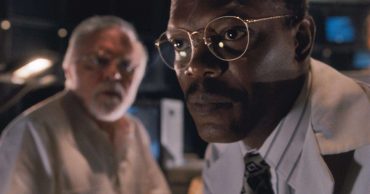
In 2004, Clint Eastwood released Million Dollar Baby, which was successful in not just a critical sense but also in a commercial sense. However, it took Eastwood much longer to make the movie than most people would have expected based on his famous speed as a film-maker because it took him some time to raise the necessary funding in spite of his career up to that point. At the time, he blasted the movie studios’ tendency to favor remakes, sequels, and other follow-ups to successful franchises as opposed to a willingness to take chances on new but promising ideas, which is rather understandable considering his treatment. However, it should be noted that said trend has not changed since Eastwood spoke out in 2004. Instead, it has intensified, while showing no signs of changing anytime soon in the near future. Here’s his quote
“At the major studios, you see people wanting to remake a TV series, wanting to make a sequel […] maybe they should just concentrate on writers and original scripts”
What Is the Logic Behind the Remakes?
With that said, while there are a lot of people who have a lot of reasons to be less than enthusiastic about the sheer number of remakes that are coming out of the movie studios in modern times, said trend is an understandable one. After all, movie studios exist for the purpose of making a profit, while artistic merit and similar goals are secondary concerns if that. As a result, movie studios have a strong incentive to avoid taking on too much risk, which can result in catastrophic losses because the production budgets for their biggest movies have ballooned into the tens of millions and even the hundreds of millions. Even worse, this is without considering the cost of marketing, which can add even more millions to the total bill. Summed up, making movies is an expensive process, which is why movie studios want to maximize their chances of being able to make a profit as much as possible.
There are a number of reasons that a remake presents less risk than something new and original in this regard. First, the movie studios choose to remake successful franchises, meaning that in a real sense, the basic concept of the remake has proven its value instead of being nothing but an unknown. Of course, the truth is much more complicated than that, but nonetheless, such is the perception. Second, a remake has a built-in viewer base consisting of the fans of its predecessor, which makes that much easier for it to build the number of viewers needed to make it a success rather than a failure at the box office. Third, the movie studios should theoretically have a solid understanding of the sort of people who are interested in the franchises that are being remade. This is important because having that information enables them to make the remake for the precise purpose of appealing to said individuals, thus maximizing the remake’s appeal in the process. Furthermore, knowing what kind of people are interested in a particular movie enables a movie studio to reach out to them that much better, which is rather important when marketing has become so expensive.
All in all, there are strong market forces that have shaped the modern market for movies into what it is. Theoretically, it could change in the future, but for the time being, this is what it is, as unfortunate as it might be.
 Follow Us
Follow Us




